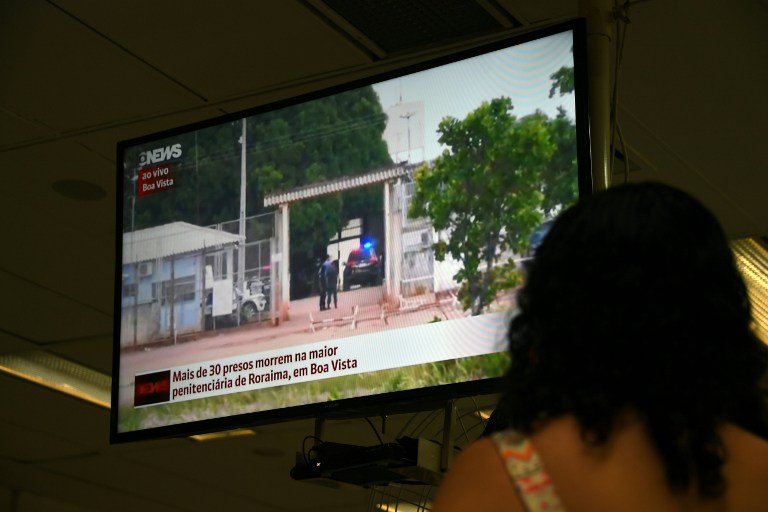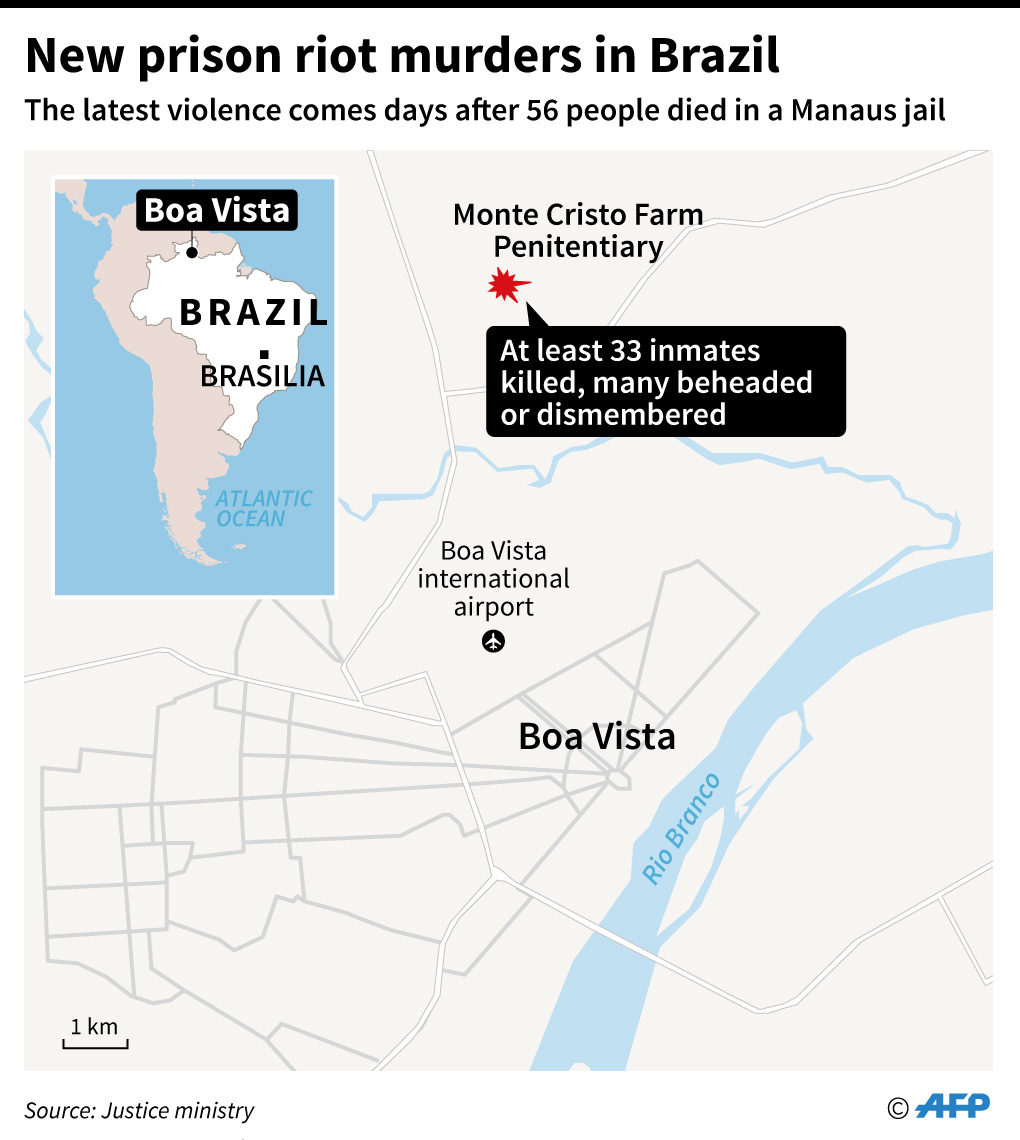
At least 33 inmates were killed by their rivals at a prison in northern Brazil on Friday, days after a riot by warring gangs left dozens more dead at another prison, officials said. / AFP PHOTO / VANDERLEI ALMEIDA
BOA VISTAa, Brazil (AFP) – Brazil was hit Friday by its second eruption of grisly prison violence this week, as inmates beheaded and mutilated fellow prisoners at a northern jail, leaving at least 33 dead.
Pictures taken by a police officer at the scene showed bloodied, mangled bodies piled in a concrete hallway at the Monte Cristo Farm Penitentiary (PAMC) in Roraima state.
Many of the victims were beheaded, disemboweled or dismembered, said officials.
The state government said the situation was now “under control.”
The latest unrest came days after jailed gang members killed 56 rivals in a 17-hour bloodbath Sunday and Monday at a prison in Manaus, the capital of the neighboring state of Amazonas.
Unlike that incident, Friday’s violence did not appear to be an all-out riot but rather a rapid early morning attack by one group of inmates against another, lasting less than an hour, a local government spokeswoman told AFP.
Most of the killings were carried out with knives, she said. No firearms have been found inside the prison so far.
It is the latest orgy of violence inside Brazil’s overcrowded and underfunded jails.
President Michel Temer is under growing pressure over the issue.
After facing criticism for his slow reaction to the Manaus riot, Temer released a statement Friday saying he “deplores” the latest killings.
On Thursday, he announced the federal government would spend $250 million to build at least one new prison in each of Brazil’s 26 states.
Rights activists however questioned whether more prisons were the answer.

Gang infighting?
PAMC, the largest prison in the state, was also hit by deadly violence in October, when fighting between rival gangs killed 10 inmates.
Some of them were decapitated, others were burned alive.
At the time, the prison held 1,400 inmates — double its capacity.
Deadly prison riots have intensified in Brazil since a truce between the country’s two largest drug gangs, the First Capital Command (PCC) and the Red Command (CV), broke down in July.
Authorities said the Manaus riot was caused by a local ally of the Rio de Janeiro-based CV massacring rivals from the Sao Paulo-based PCC.
They said however that Friday’s killings appeared not to have been retaliatory but rather some kind of internal clash between prisoners involving PCC members, said Justice Minister Alexandre de Moraes.
“It is apparently not a revenge attack by the PCC” for Monday’s massacre, he said in Brasilia, before traveling to the scene.
“Since the last uprising, the different factions had been separated. All the inmates (involved in Friday’s violence) were from the same faction, linked to the PCC.”
No quick fix
The states of northern Brazil, which border top cocaine producers Bolivia, Colombia and Peru, are battle zones in the drug trade.
Prisons there — and throughout Brazil — are often under the de facto control of drug gangs, whose turf wars on the outside are also fought out among inmates.
Overcrowding exacerbates the problem, activists say.
Brazil’s inmate population has been swollen by efforts to crack down on a violent and lucrative drug trade.
The country’s jails hold 622,000 inmates, mostly young black men, according to a 2014 justice ministry report, which found that 50 percent more capacity was needed.
Brazil has the world’s fourth-largest prison population after the United States, China and Russia, according to the report.
But proposed solutions such as Temer’s prison-building plan fail to address the root problem, said sociologist Camila Nunes of the Federal University of ABC in Sao Paulo.
Brazil needs “medium- and long-term policies to reduce the vulnerability of certain social groups, to prioritize prevention rather than repression,” she told AFP after the president’s announcement.
“Supposedly instant solutions like the one that was announced… will not solve the problem. They will just placate public opinion until there’s another tragedy.”







